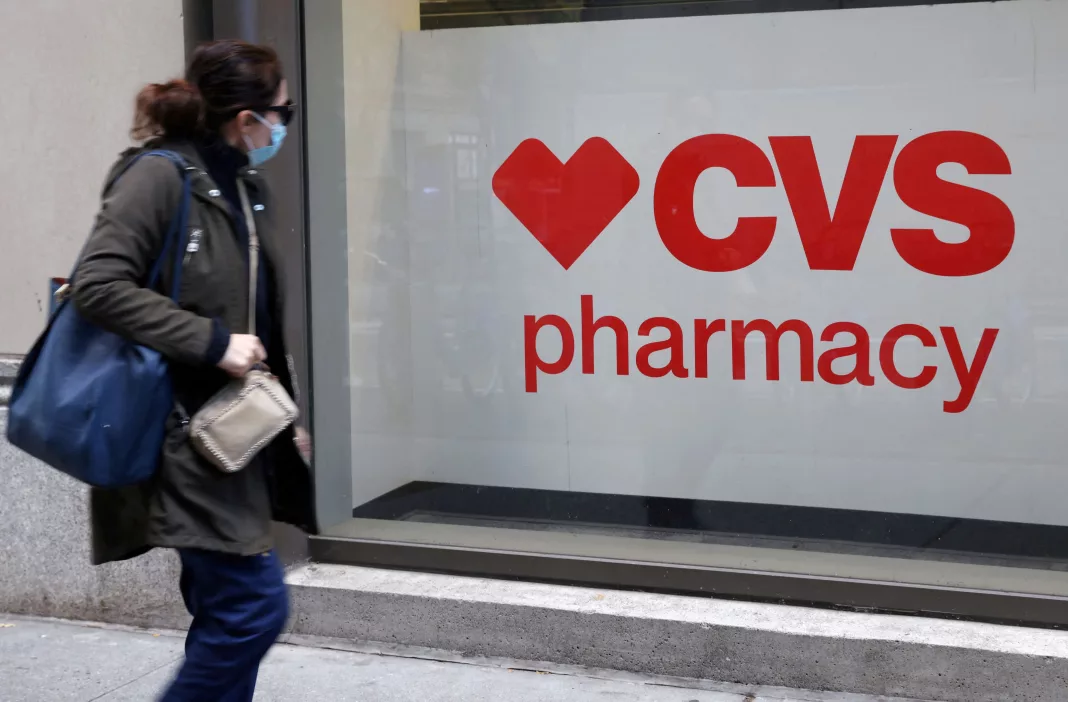CVS Health, one of the largest drugstore chains in the United States, experienced a significant drop in its stock value as the company reduced its profit outlook for the year. The main reason for this downward revision is the rising medical expenses that are affecting the U.S. insurance industry as a whole.
The company reported first-quarter revenue and adjusted earnings that fell short of expectations, leading to an 18% plunge in its stock price. CVS now expects adjusted earnings of at least $7 per share for 2024, down from its previous guidance of at least $8.30 per share. This reduction in profit outlook was not anticipated by analysts, who were expecting full-year adjusted profit of $8.28 per share.
The primary factor behind this revision is the higher medical costs in CVS’s insurance business during the first quarter, which are expected to persist throughout the year. CVS owns health insurer Aetna, and like other insurers such as Humana and UnitedHealth Group, it has seen medical costs spike due to more Medicare Advantage patients returning to hospitals for delayed procedures. These procedures include joint and hip replacements that were postponed during the COVID-19 pandemic.
Medicare Advantage is a privately run health insurance plan contracted by Medicare, and it has been a significant source of growth and profits for the insurance industry. However, concerns about the escalating costs associated with these plans have been mounting, especially since they cover more than half of all Medicare beneficiaries.
CVS CEO Karen Lynch remains optimistic about the company’s long-term prospects despite the current challenges. She stated that the company has a pathway to address its near-term Medicare Advantage challenges and that the current environment does not diminish their opportunities or enthusiasm.
In addition to the rising medical expenses, CVS also faced setbacks in its health services segment. Sales in this division, which includes the pharmacy benefit manager Caremark, declined due to the loss of a large unnamed client. This client’s departure follows similar decisions by other major companies, such as Tyson Foods and Blue Shield of California, to switch to different pharmacy benefit managers.
These changes reflect a broader shift in the healthcare industry, as startups promising lower costs and transparency challenge the largest pharmacy benefit managers and force them to reconsider their business models.
Despite these challenges, CVS has been actively transforming itself from a drugstore chain into a large healthcare company. It made significant acquisitions over the past year, including the $8 billion acquisition of healthcare provider Signify Health and the $10.6 billion deal to buy Oak Street Health, which operates primary-care clinics for seniors.
CVS’s health insurance segment generated significant revenue growth during the first quarter, with its revenue increasing by more than 24% compared to the same period last year. However, adjusted operating income for this division fell short of expectations, mainly due to increased utilization of Medicare Advantage and the unfavorable impact of Medicare Advantage star ratings.
On the other hand, CVS’s health services segment experienced a decline in revenue, primarily due to the loss of the unnamed client and continued pharmacy client price improvements. However, growth in other areas such as Oak Street Health, Signify Health, and specialty pharmacy services partially offset this decline.
The pharmacy and consumer wellness division of CVS saw a modest increase in sales, driven by heightened prescription volume and increased contributions from vaccinations. However, pharmacy reimbursement pressure and other factors weighed on the division’s sales.
Overall, CVS is facing several challenges in the current healthcare landscape, including rising medical expenses and evolving dynamics in the pharmacy benefit management sector. However, the company remains confident in its long-term earnings power and is actively pursuing strategic acquisitions to transform itself into a leading healthcare provider.


